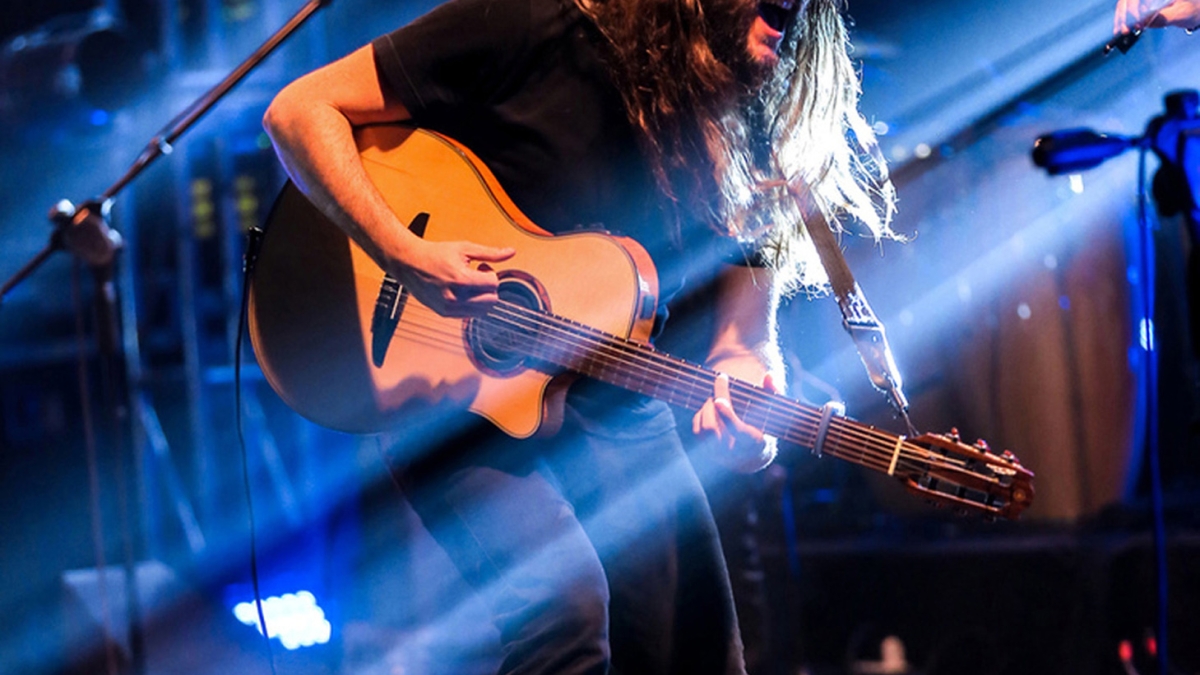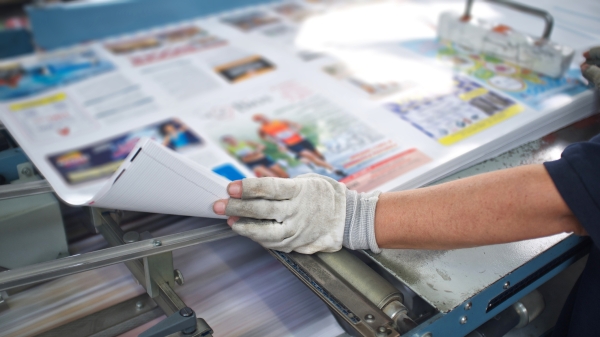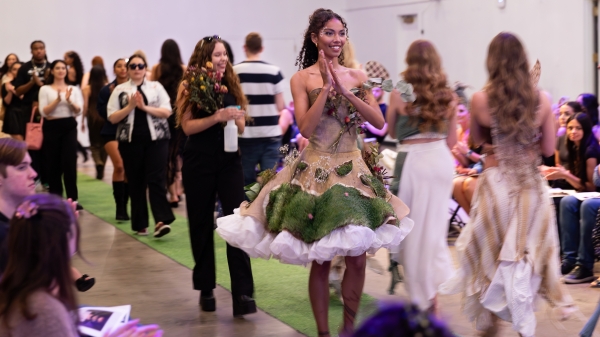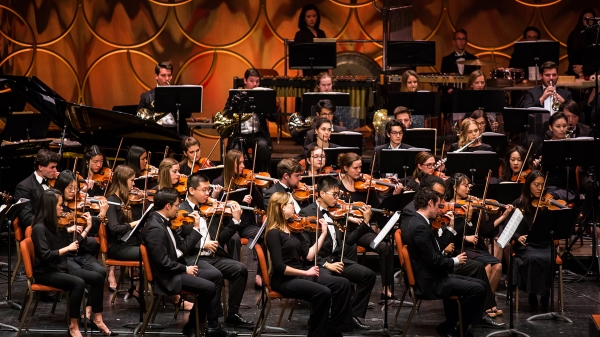Q&A: Chilean indie folk rocker Nano Stern talks music, tradition and the beauty of mistakes
Internationally renowned singer/songwriter and multi-instrumentalist chats about his craft, being human and his March 27 performance at ASU Kerr

Chilean singer/songwriter and multi-instrumentalist Nano Stern will perform at ASU Kerr on Wednesday, March 27. Photo by Carlos Muller
Nano Stern is seeking to raise his vibration through sharing his music. Tolerance, justice, diversity, human rights, the human essence and the vibration of music are the backbone of his sound.
An outspoken Chilean indie folk-rock singer/songwriter leading the new wave of Chilean music and tipping his hat to the Nueva Canción movement of revolutionary song, his devoted following stretches across the Americas to Europe and Australia. Stern nimbly jumps across a range of instruments during his performances, weaving Spanish and electric guitars, piano, violin and Andean and Nordic flutes into his songs.
He sings in Spanish and tells stories in English to give context to his songs. What his vast body of fans and social media followers celebrate is that his musical virtuosity, charismatic live performances and passionate advocacy for current social justice issues result in a feeling of community. YouTube videos of Stern's music boast several million views and have comments that show his fans' deep appreciation for his presence and talent. "Nano is a breeze of authenticity and light in the midst of so much mediocrity," said one poster.
"Sharing his space and feeling his vibration can be an inspiring and healing experience," ASU Kerr General Manager Tracey Mason said. "He sees himself as part of a continuum of artists with a responsibility to honor the past and build a foundation for the future."
Stern performs at ASU Kerr on Wednesday, March 27, at 7:30 p.m. ASU Kerr is at 6110 N. Scottsdale Road in Scottsdale. Tickets can be purchased at asukerr.com or by calling 480-596-2660.
Learn more about Stern at nanostern.cl. Below, he answers questions about music and his process.
Question: What do you feel is your responsibility as a musician?
Answer: Beyond all, I think that musicians, we are resonators. That implies a lot of side roles, but our main role is to vibrate strongly. Music is a vibration. That is what it is. Beyond all analysis and everything that you can imagine, that is actually what it really is, it’s just air moving. With all phenomena of resonance in physics, the stronger that a wave is, the more that it will generate resonance around it. That is our biggest responsibility, to be able to resonate as much as we can and to generate this community and communion through and around the music. In that way, I think we live in a society which is very ego-based and very superficial and very me-me-me. I am, of course, part of that and I am always having to check out not to become like, “I’m a famous musician and it’s all about me.” Actually it’s not, it’s that in this context of resonance, you are just a medium.
A string resonates, but it is not the source. There is some energy that makes it resonate. I think it’s the same with musicians, and with artists and creativity in general.
Q: How do you think people in Arizona will relate to your music and the issues you sing about, and what will they take away from your performance?
A: I think they will relate and of course, as an artist, I’m really happy that this can happen. As a human being, it’s a really sad reality that pretty much anywhere that I will go in the world — and I say it out of experience — people will relate to the issue of the environment being destructed by completely irresponsible people who are just sort of going after their own personal earning, being aware that they are consciously destroying something that belongs to all of us. It doesn’t really belong to all of us, but it is something that we belong to, out of which our own life is depending on. I think because of that, these songs transcend the local reality of Chile. What would I like more than for this to just be an extremely local issue that no one can really relate to? Unfortunately, that is not the case.
The race of capitalism versus the environment is something that has had a global reach for a long time and has become a global issue. That’s why it’s important to hear the local voices from around the world so we can go and share our different little local experiences and get a global perspective out of it.
There was this very ’90s approach of “think globally and act locally.” It’s time also to think locally and act globally — I think it’s time for the other approach to come into play at this time. Think of all the tiny realities of people. Even people like me who are traveling a lot around the world and changing places; we don’t live a global life — we live a local life. This local reality must be considered to act globally. It is on that scale that now our local realities are being determined.
Q: Tell us a bit about your creative process.
A: The creative process is really bouncing constantly between freedom and structure. Both are very important and these two opposite poles of freedom and structure, which date back to the concepts of Dionysia, Apollonia and all the way back to Greece and even before that, they’re constantly there whenever you are creating something. In the process of writing songs, which is a beautiful marriage of word and music in which both are constantly interacting and feeding each other, I try to be on the tip of my toes on both ends, being aware that you have to consider structural issues which could go from what I want to speak about to setting a frame where you want to express yourself, and also allowing freedom and allowing mistakes to happen. I think mistakes are the secret ingredient of creativity. If you don’t make a mistake, it kind of means you are not leaving your comfort zone. You are staying within your perimeter. There is a beautiful Greek word for when you are leaving or going out of your perimeter, which is “experiment.” Experimenting and making mistakes go hand to hand very well together, therefore I am a fan of mistakes.
I realize more and more and more that you cannot do it on purpose, but when it does happen that you make a mistake that is beautiful, it’s like a blessing, a little drop of that thing which we call creativity. It’s actually a mixture of experience and chance. It’s like a little bit of the randomness of things.
"I think mistakes are the secret ingredient of creativity. If you don’t make a mistake, it kind of means you are not leaving your comfort zone."
— Nano Stern
Q: What kinds of things are you most focused on as you are creating music now?
A: At this moment in my creative process, I am wanting to focus again on very interior aspects of human emotions, personally what I am experiencing, what we all experience at different times in our lives. I’m a little bit reluctant at this specific moment of big issues that happen outside in the world. I am wanting to focus back on the basics of being a human. What is it that makes us be who we are in a more primitive and intimate context? Music is such a gateway to that reality that it cannot be wasted.
I have started, for a new creative process for a new album, concerning myself with beauty as a thing of its own. I think we live in a society that has forgotten about the importance of beautiful things. We live in the age of extreme pragmatism and practicality, data, hyperconnectivity and hypersaturation of information. We’ve sort of lost touch with the super simple and basic obsession of humanity with creating things which are in themselves beautiful. I think it’s a noble thing and an important thing to do at this moment.
Q: What do you feel your role is in continuing the musical traditions of Chile and other places in your background?
A: I’ll answer with someone else’s answer. A friend of mine from Sweden who is very important in the revival of Swedish folk music wrote that he felt, as a musician who was playing traditionally inspired music, he’s part of a human pyramid in which people are standing over each other. He is aware that he can see that he’s where he is only because he is standing on the shoulders of others who went before. Being there is not only a privilege, but is also a responsibility, of being able — because you are one step beyond — to look one step further into the horizon. You have to create a solid foundation for those who will come later and stand on your shoulders. You have to be able to go higher and look further. It’s like being part of a chain of culture, of tradition, of song, of poetry, of being human.
Q: ASU Kerr is a very intimate venue. Is there something you enjoy about performing in smaller spaces, as opposed to large festivals and stages?
A: I consider myself much more of a small-space performer. I enjoy it much more. The kind of music we do is depending on a lot of subtlety, and subtlety is lost most of the time on these big, big festival stages. I am glad we can have this context, and I would like to stress for the non-Spanish-speaking audience, that you should come. There is absolutely no boundary there with language. I tell a lot of stories in the show in English. I introduce the songs, I give context. It’s a chance to immerse yourself in a different sound, in a different language, in a different world of images, and overall an experience that will take you out of the everyday, but it will not feel like an alien thing. It will very much make sense to people who don’t necessarily have a connection or an interest in Chilean or South American culture.
Q: Do you have any recommended listening for people that want to understand the influences you draw from and the traditions of Nueva Canción?
A: I would recommend listening to Victor Jara and Inti Illimani, which are a soloist and band that are extremely important in continuing this tradition. Inti Illimani is still going and actually, it was them who brought me as a young kid onboard to the U.S. for the first time. I came here touring with them as a guest, and therefore I can now be here and do this. They are a living part of the history of Chilean music and they are directly connected to Violeta Parra and Victor Jara, who I actually used to play with many times. It’s a real link, and I consider myself truly blessed and privileged to able to be a part and continuation of that tradition.
Q: What has surprised you the most in your life as a performer and creator?
A: It’s the deep simplicity of the way that we humans connect to each other through music, because that’s the way I approach the world through my life. The incredibly clear vibration that is there no matter the culture, no matter the language, no matter the kind of music. The fact that we come up or have been given this incredible thing called art through which we can connect and be human all together.
More Arts, humanities and education

Small presses dealt big blow
A mighty rumble reverberated throughout the publishing industry late last month with the abrupt closure of a well-known book…

'Living dress' wins Eco-Chic sustainable fashion contest
When Elena Marshall is done showing off her award-winning “living dress,” she’ll bury it in her backyard. The dress, a chic…

ASU Symphony Orchestra welcomes visionary conductor Jonathan Taylor Rush
Guest conductor Jonathan Taylor Rush will join Arizona State University’s Jason Caslor, director of bands, to lead the ASU…